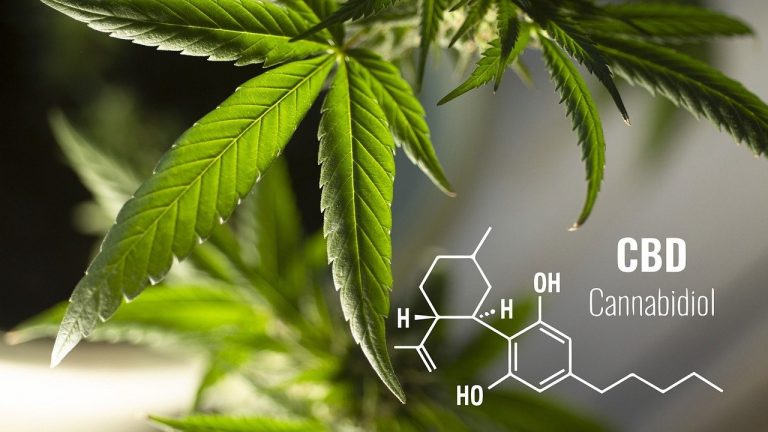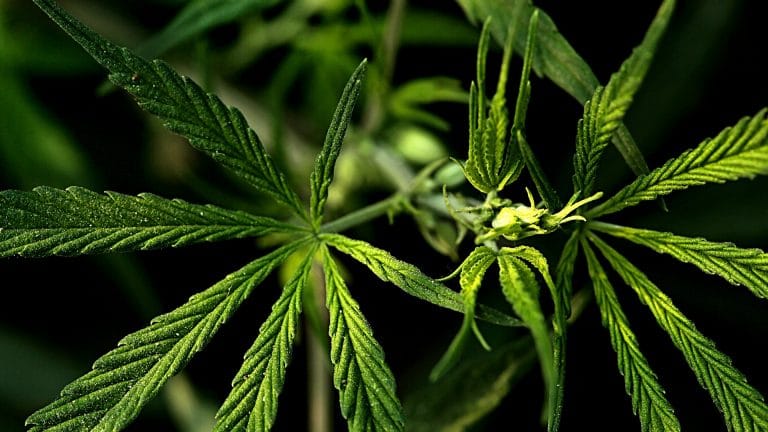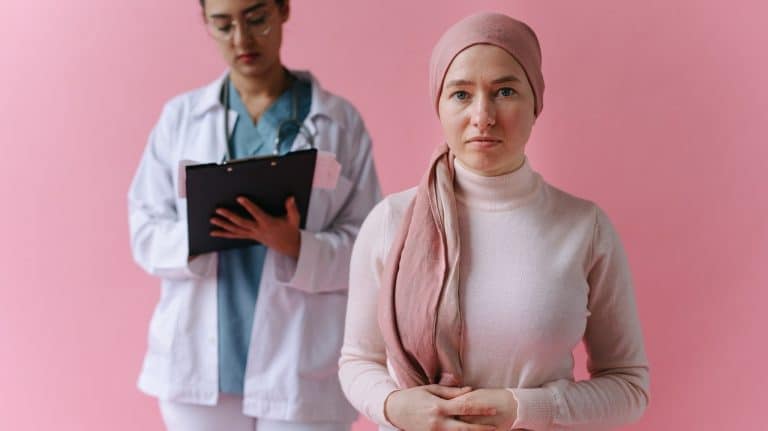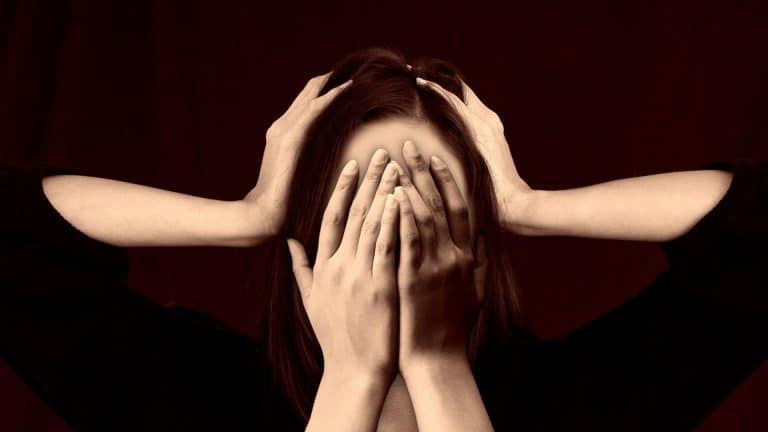Can CBD Oil for Sleep End Your Insomnia?

Can CBD oil for sleep put an end to your tossing and turning? CBD oil effects are the talk of the town, so we just had to check if there is some truth in the claims that this is the best sleeping aid nowadays.
Generally, we hardly ever think about the importance of sleep unless we are sleep-deprived. Yet, sleeping makes such a huge part of our lives! Sleep statistics report that we spend 26 years of our life asleep.
Marijuana for sleep has been used to speed up the process of falling asleep. After all, we spend seven years (!) of our lives in bed, just trying to drift off.
Let’s see if we can save ourselves a year or two. Just like there are plenty of factors that influence your sleeping patterns, such as disease or everyday stress, there are certain things to bear in mind when deciding to use sleeping aids. Let’s take a closer look at how cannabis for sleep can get you ready for bed!
What Is CBD Oil?
In short, CBD oil is an extract made from the cannabis plant. Its content may vary depending on the subspecies it was extracted from, e.g., hemp or marijuana. There are different types of extraction, but they needn’t be too complicated — some of the oil making processes you can even do in your kitchen and get your own sleeping aid!
Medical benefits abound, so when you set the right CBD oil dosage for sleep (see below), don’t get surprised if you notice some changes in your health and body. CBD is famous for treating inflammation, seizures, opioid addiction, cancer, acne, and so on. However, here we are focusing only on its sleeping superpowers.
As an oil, it has a wide variety of applications. CBD oil can be used as the oil itself or a tincture, but it can also be added to food, creams, lotions, or pills. Different forms come with distinctive advantages/disadvantages, which we are going to deal with a bit later.
How Can CBD Oil for Sleep Help?
One thing that all research on CBD as sleeping medication agree on is that we need more research! Here is what we have gathered so far:
It is extremely beneficial for anxiety and insomnia
Medical marijuana is very much recommended for treating anxiety that goes hand in hand with sleeping issues.
Apparently, there is an area in the brain of anxiety patients called Hippocampal, which is smaller than in healthy individuals. CBD oil for anxiety aids its neurogenesis. A study with human subjects, who were taking CBD oil for sleep and anxiety, showed magnificent results. Sleep patterns improved with almost 70% of the participants during the first month. Overall, CBD was well-tolerated. The only downside is that long-term effects aren’t studied enough, so it is possible that the CBD effect can fluctuate over time.
Eventually, CBD showed mild effectiveness in treating sleep disorders, but it was extremely successful at decreasing anxiety levels. As the anxiety dropped suddenly, we can assume that the question, “how to use CBD oil for sleep?” simply needs a longer study to determine the best application method.
It works better if you have a sleep disorder
Believe it or not, but cannabidiol oil works best in cases when you have problems with how to fall asleep. Healthy individuals don’t seem to notice much change in how fast they fall asleep, whereas those who were dealing with insomnia are full of praise for sleep aid.
CBD oil can end your nightmares
If you have haunting, vivid dreams, the best CBD oil for sleep is the one made from Cannabis sativa. Yet, a high intake of CBD is not advisable as it can cause insomnia, so be wary about CBD oil dosage.
Full-spectrum CBD oil is great for insomnia
Regular sleepers have a sleep efficiency of about 85%. Anything below that, and you are dealing with some form of insomnia.
Pure CBD oil is not so popular for insomnia as the research respondents had better results with a bit of THC. This is why some people opt for smoking weed before bed. You should understand that THC reduces sleep latency (the time needed to fall asleep). Admittedly, long-term side effects may include suppressing slow-wave sleep.
CBD makes the pain go away
Chronic pain is one of the very common side effects of many diseases. For example, those suffering from multiple sclerosis often feel pain at night. Losing sleep interferes with recovery processes. Fortunately, CBD oil for sleep aids in reducing chronic pain.
CBD with THC can treat sleep apnea
Sleep apnea is no joke. As a matter of fact, the WHO defines obstructive sleep apnea as a chronic respiratory disease.
Before you decide to use any form of cannabis, you better determine the exact cause of your insomnia. These can vary from PTSD to some physical problems. Depending on its source, there is a wide variety of CBD applications, but perhaps you will need to deal with the issue in another way.
How to Take CBD Oil for Sleep?
We could make a joke and say that CBD oil comes in all shapes and sizes. True enough, CBD sleep aid can be taken in a multitude of forms. As an oil, CBD is easily added to almost anything you can think of. There are CBD oils, pills, tinctures, creams, lotions, patches, edibles, suppositories, and different concentrates. How to fall asleep fast shouldn’t be hard to answer if you know what the real reason for your sleep deprivation is and when to take CBD oil for sleep.
Speaking of the former, you should see a doctor. As for the latter option, we’ve got the answers all laid out for you.
CBD Oil
If you decide to take it sublingually or as an oral spray, you should feel the effects within minutes. However, this may not always work. Why? Because people get too excited about falling asleep fast. It’s funny but true for a lot of people tortured by sleep deprivation. Its specific, earthy flavor may be repelling too.
CBD Edibles
What are the best edibles for sleep? Is it gummy bears, muffins, tea, chocolate, wine, or brownies? It all comes down to the dosage and your awareness that it takes a long time for edibles to release cannabinoids into your system. Whichever you are eating/drinking, do it about two hours before bedtime. As the effects are felt slowly, they are perfect for chronic pain patients.
CBD Topicals and Patches
Small doses of CBD are released into your body through transdermal delivery. Some believe that this is the best marijuana for sleep because CBD does not go through the stomach, liver, or lungs. All these are the places where cannabinoids get broken down, so their value may be lost. However, you have no such fears when you apply the patch to your skin.
How to sleep with a patch? Make sure you place it on the spot which has little fat beneath and not so much muscle. For instance, somewhere near a shoulder joint, wrist, or knee will work best for this type of weed for sleep, because the skin is thin, and there is good access to blood vessels.
CBD Vape Pens
These are quite discreet and with an immediate effect. If you find smoking before bed relaxing, then an immediate CBD boost should get you ready for bed in no time. Following the latest news about vaping-related deaths, it is vital that you buy your CBD concentrate from a reliable source.
CBD Pills
This is a very common way of taking medical marijuana for sleep. Basically, the effect is similar to eating edibles, as the gel capsule has to go through the digestive system. Nevertheless, it is much easier to determine the exact dose, just like with CBD drops. The bioavailability is what makes the difference between pills and drops, though.
According to some estimates, CBD pills and capsules have a bioavailability rate of a maximum 20%. With the sublingual method, CBD oil enters the bloodstream directly via a sublingual gland, and its efficiency ranges between 12-35%.
Smoking cannabis before bed is another option for CBD intake, though it is not CBD oil per se. Drawing the conclusions from smoking vs. vaping debate, the latter is appealing for several reasons – easier dosage, no tar or toxic substances, etc.
How Much CBD Oil for Sleep Should I Take?
A typical dose for a lot of CBD products is 10 to 20 milligrams. Until more research is done and we get manufactured products clearly stating the exact dosage that works for the majority of adults, you are pretty much left on your own. The rule of thumb is to start with a small dose and gradually increase it until you realize how many drops of CBD oil for sleep suit your body best.
Always keep in mind, however, that both dosage and absorption matter.
How long does it take for CBD oil to work? Unless you are an experienced cannabis connoisseur, you may not know how your body will react to this new stimuli. For some insomnia sufferers, it takes about a month of usage to finally observe positive changes.
CBD Oil for Sleep Side Effects
The most common CBD side effects for falling asleep include the following:
- Dry mouth (especially if using oral sprays, oil, or tinctures)
- Diarrhea
- Fatigue
- Changes in appetite/weight.
CBD is said to be quite an appetite booster, so you may end up with an extra pound or two if you start with the regular use. There are other CBD oil side effects, but these are the most common ones when it comes to treating sleep disorders.
Surprising CBD oil for sleep side effects include being positive for a drug test. Certain drug tests are more sensitive than others, so even CBD oil can trigger some of them under specific conditions. Of course, if you are using full-spectrum, aka cannabis oil, you have higher chances of this happening.
CBD oil can also interact with some medications, which your doctor should warn you about.
CBD Oil vs. Prescription Pills
Interestingly, it’s worth mentioning that prescription sleeping pills have greater side effects than CBD oil for sleep does. A study published a couple of years ago claims that sleeping pills greatly increase the risks of cancer and death.
What is more, the oil is said to keep the balance between sleep quality and quantity. In contrast, over the counter sleep aid can help you stay asleep for longer, but the sleep quality will be poor. Consequently, you’ll have difficulties completing your daily tasks.
Pure vs. Full Spectrum
Which one is better? Both pure and full-spectrum have their advantages and disadvantages. We are more inclined to vote for the cannabis oil for sleep, and there are three perfectly valid reasons for it.
Terpenes
How to fall asleep faster? Just use these substances which add to the overall experience. Have you noticed how lavender or thyme have a relaxing effect? Imagine if they were added to your CBD dose. For this reason, weed strains with terpenes such as myrcene, nerolidol, and linalool is considered the best option.
THC
The psychoactive cannabinoid aids breathing during sleep and has a sedative effect. As a result, it is recommended as marijuana for sleep apnea. You will probably spend more time in slow-wave sleep and less in REM sleep. In other words, you’ll dream less. Unfortunately, the side effect of this is REM rebound — lots of dreams after you stop using CBD oil with THC.
Though there is no official FDA-approved drug for sleep apnea, Nabilone and Dronabinol, synthetic THC cannabinoids, seem to be of help, thanks to their influences on serotonin.
CBN
CBD and THC aren’t the only superstars in our search for the best cannabis for sleep. CBN is one of its fellow cannabinoids that is said to be amazing for prolonging sleep time. Also, due to the entourage effect, it seems to work extremely well with THC, too. The research is promising.
Of course, until more research and studies on CBD oil sleep aid are carried out, there is not enough evidence to claim that full-spectrum CBD oil is the ultimate solution for everybody.
Conclusion
Does cannabis help you sleep? Yes, without a doubt. Can CBD oil help you do the same? Yes, indeed. Is there a 100% guarantee? Sadly, no.
Marijuana for sleep in this oil form can bring excellent results, but before you go on a shopping spree, do the following:
- Consult your doctor — determine the exact cause of your sleepless nights.
- Stick to the dosage — start small, and see how it works for you. Be patient.
- Highest quality — no CBD for sleep is FDA approved, but always look for the reliable, third-party tested products.
To conclude, CBD oil for sleep has shown to be very efficient in helping to fall asleep faster and maintain high-quality sleep. Hopefully, it will work for you too.





